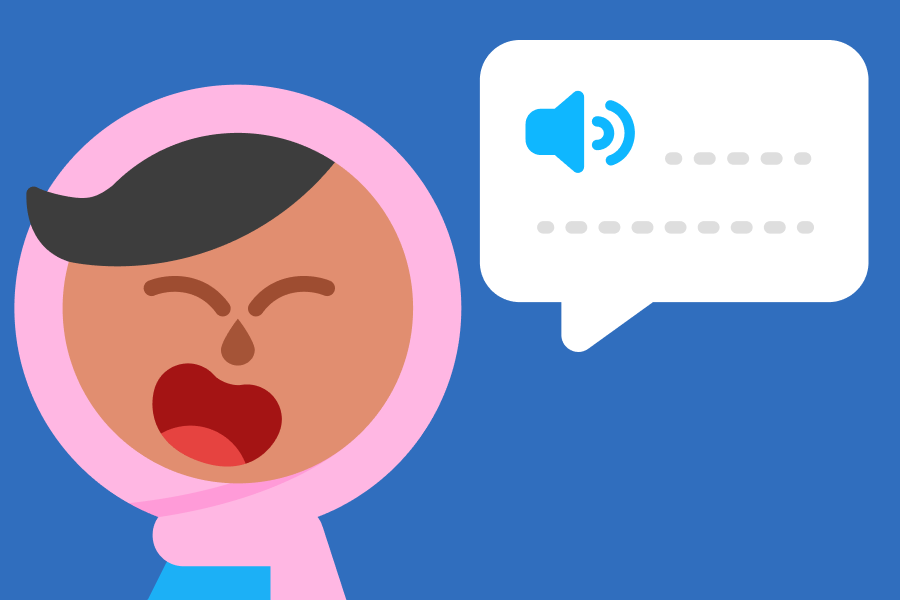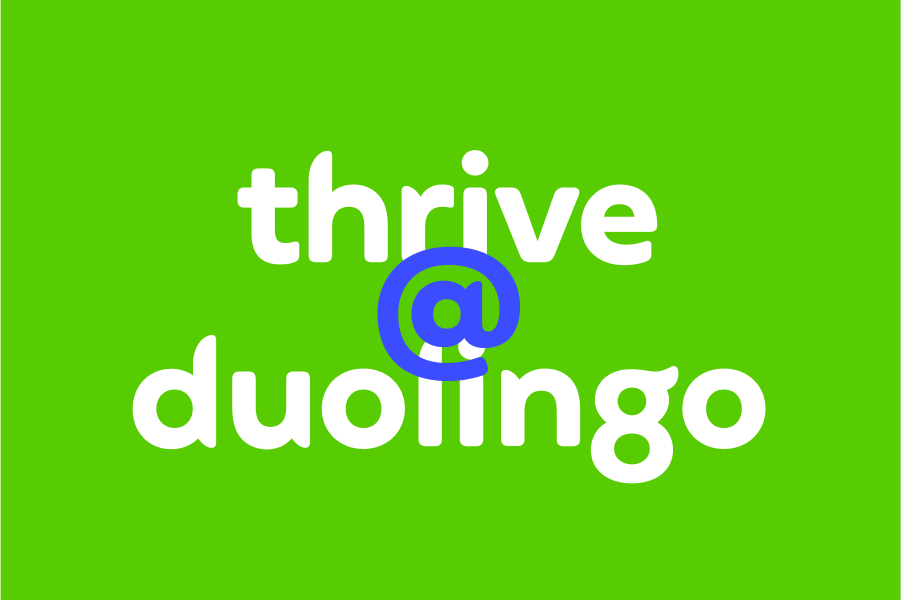Duolingo Stories are one of our most beloved features, and we know our learners have a voracious appetite when it comes to reading in their new language! And whether it's Junior scheming his way to sweets or Lin and Lucy attending the wrong wedding, they're also one of our best teaching tools: Reading is a great way to pick up new words, see grammar in action, and learn how to have conversations in the language.
We've got big news for Stories fans and our most advanced learners: we are developing new formats to teach advanced reading skills! 🎉
Soon, you can read about Oscar, Zari, Lin, and the whole gang in mini news articles, emails, advertisements, and more. You'll get a little peek into their minds and inner lives, all while getting comfortable reading longer and more varied writing mediums. Here's what you'll learn from these new Stories!
New formats, plotlines, and more!
Advanced learners will be reading all kinds of material in their new language out in the world, from books and magazines to email, Yelp, and Reddit! That's why for our new Stories we created newspaper articles, newsletters, customer reviews, letters, emails, websites, ads, and brochures.
Of course, our beloved cast of quirky, charming characters will be front and center. You’ll get to read Junior’s ads for his latest business ventures, Oscar’s diary entries, reviews of Lily and Zari’s ghost hunting service, emails and letters between the characters, and more!
| Review of a business | Journal Entry | Dialogue |
|---|---|---|
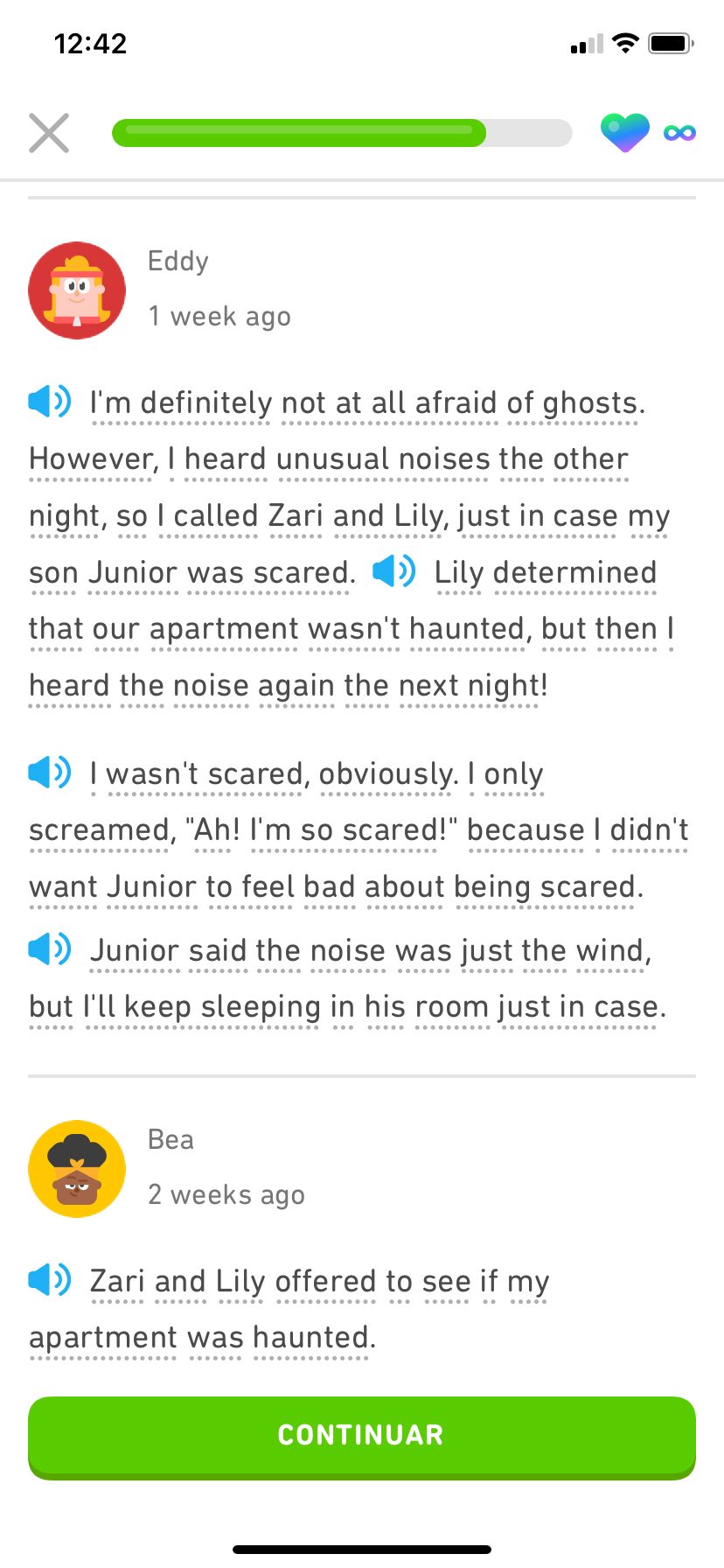 |
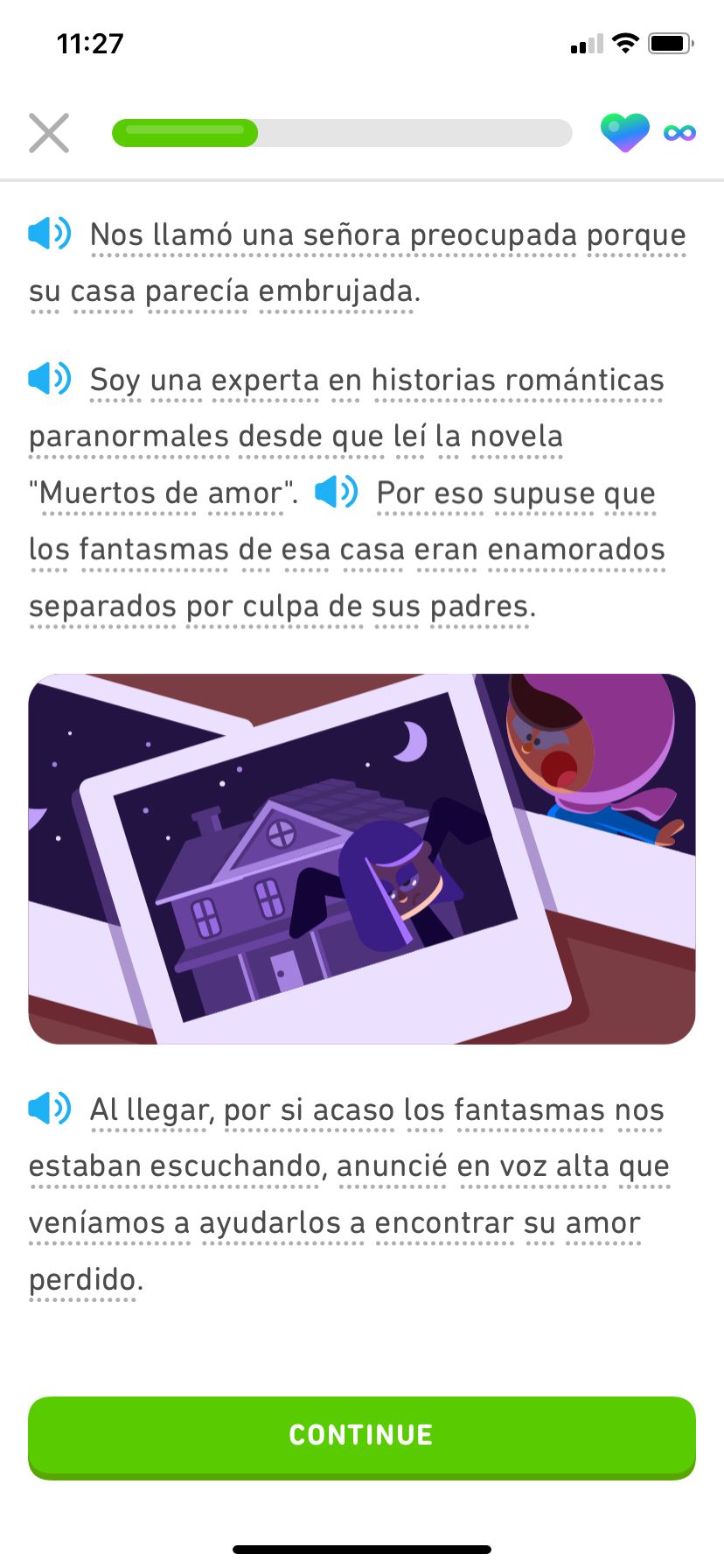 |
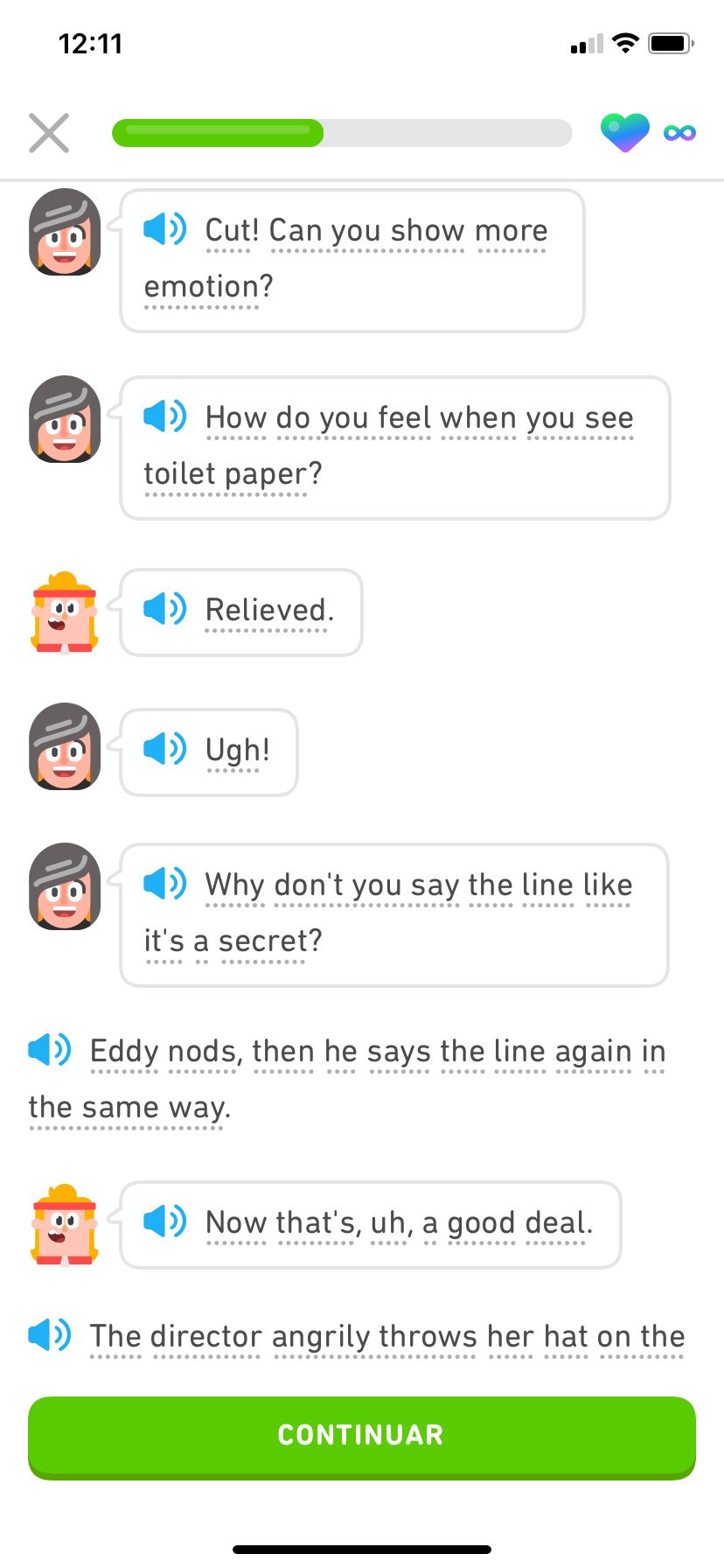 |
To keep these new Stories bite-sized and fun—even while teaching more advanced vocabulary and grammar—learners will read some of our most creative content yet, including interconnected plots and storylines. This helps us tell longer stories without making each individual lesson longer.
For example, one storyline focuses on Junior’s pursuit of getting a dog. It's told through three separate stories, including the dialogue-driven style our learners are already familiar with and then other written texts (like an email from the dog adoption shelter). We won’t say any more to avoid spoilers! 🤐
Why reading is important for advanced learners
As you strengthen your skills in a new language, you'll likely find yourself doing more reading in the language, too! It's easy to forget all the complicated reading tasks we do in our own language: understanding nuance in emails, skimming scathing restaurant reviews, reading billboards and ads for information and to get puns and jokes. And advanced learners will be doing this in another language!
When we sat down to dream up these new Stories, we brainstormed a whole list of things that advanced learners need to do when they read in their new language. Here are the skills we are helping advanced learners build through our new Stories:
- Consider options and resolve unexpected challenges. Life is complicated! Being able to talk about how you feel about something and why, or potential consequences for taking different paths is really challenging but is such an important part of communication. So in a new Story, when Eddy wants to take a new job, he has to find a sitter for Junior and sift through some rather interesting nanny profiles in order to make a decision…
- Understand a particular stance or viewpoint. Being able to tell exactly how someone feels or whether they are joking is particularly difficult; that’s why sarcasm and humor can be particularly tricky for learners. In our stories, we practice phrases and vocabulary used to express opinions and complex emotions, and we use exercises to help ensure understanding. For example, is Lily trying to sabotage Zari, or is she helping her in a roundabout way that Zari didn’t even know could be done?
- Convince others and express their perspective. It takes finesse—and language!—to make your point and get people on the same page, whether it's choosing a movie with your friends or planning a group project at school. Like Lily, who in one of our newest stories writes a letter to Zari’s favorite K-pop band trying to convince them to get back together just to make her BFF happy. 💘
How our newest Stories build proficiency
Each Story and lesson has a very specific learning goal behind it! Our curriculum designers develop communication goals, like resolving a hotel reservation problem or explaining to your boss why there's a delay, that we then use across the regular lessons and in each Story. This helps us ensure that you get lots of exposure to vocabulary, grammar, and important phrases in all the lessons that you do. For example, one communication goal is talking about things that should be done or need to be done. In our Spanish lessons, you'll learn related phrases like no hay por qué (there's no reason to) and por qué hay que (why must we do [something]) and in a new story you’ll read Lin’s website where she reassures her potential customers there’s no reason (no tienes por qué) for them to be stressed out: she’ll be there to help (…maybe)!
| In a translation exercise | In a dialogue exercise | In a new Story |
|---|---|---|
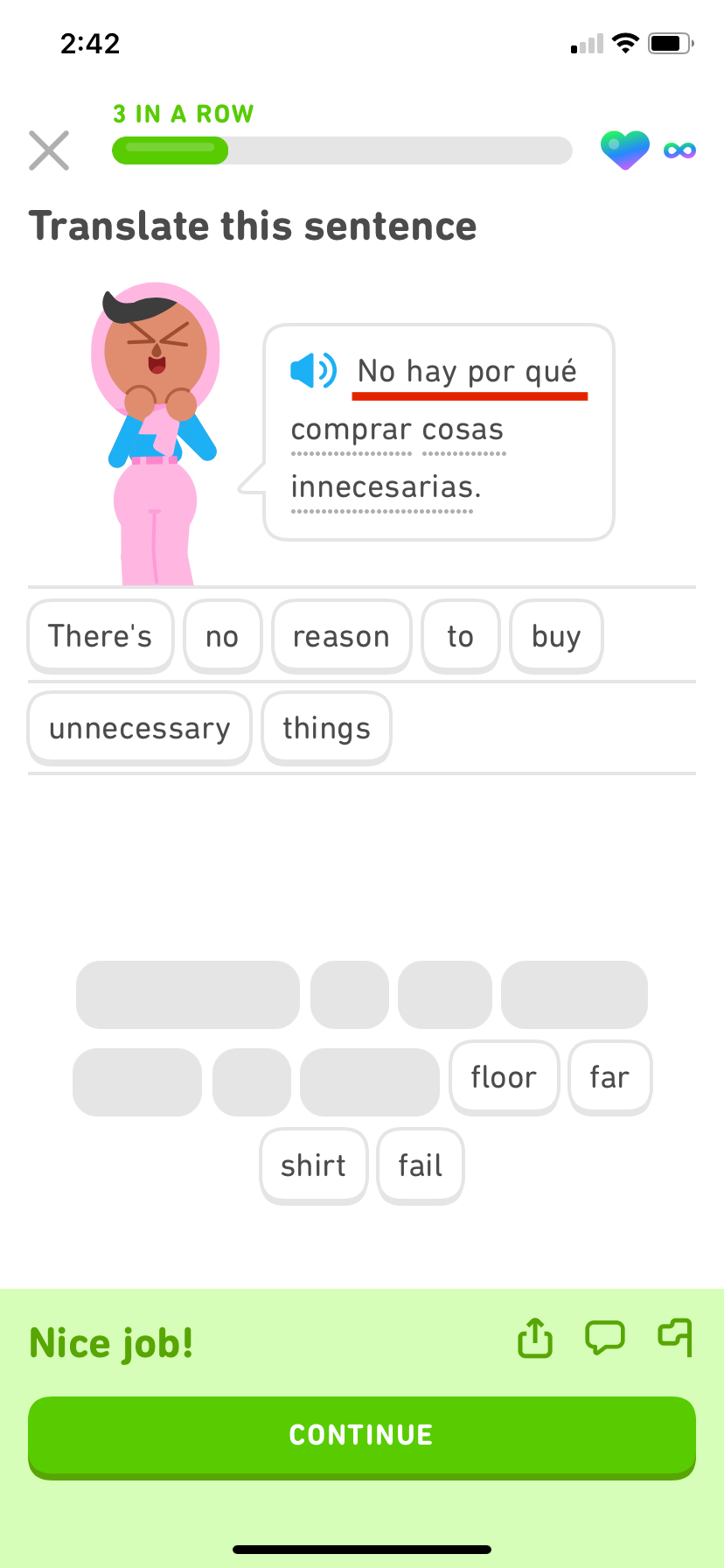 |
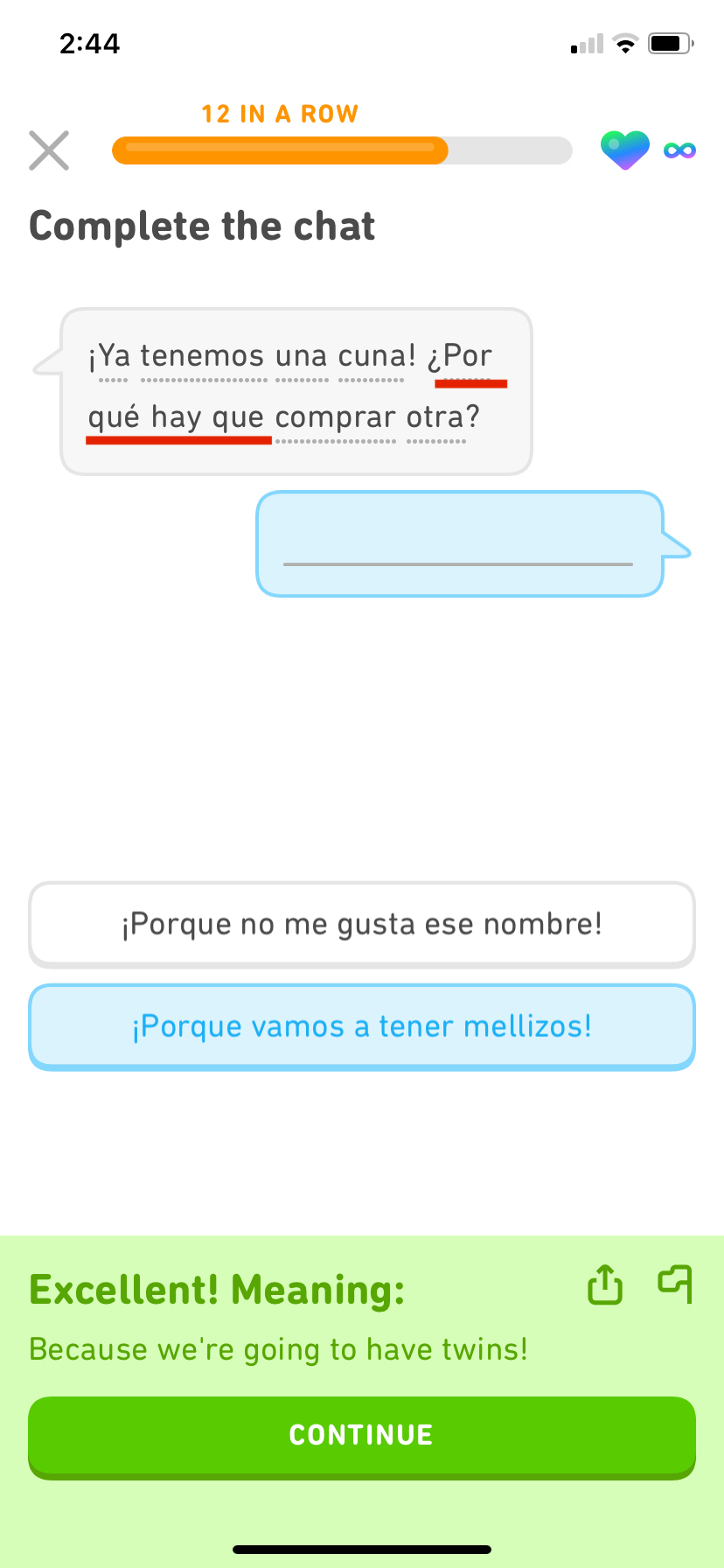 |
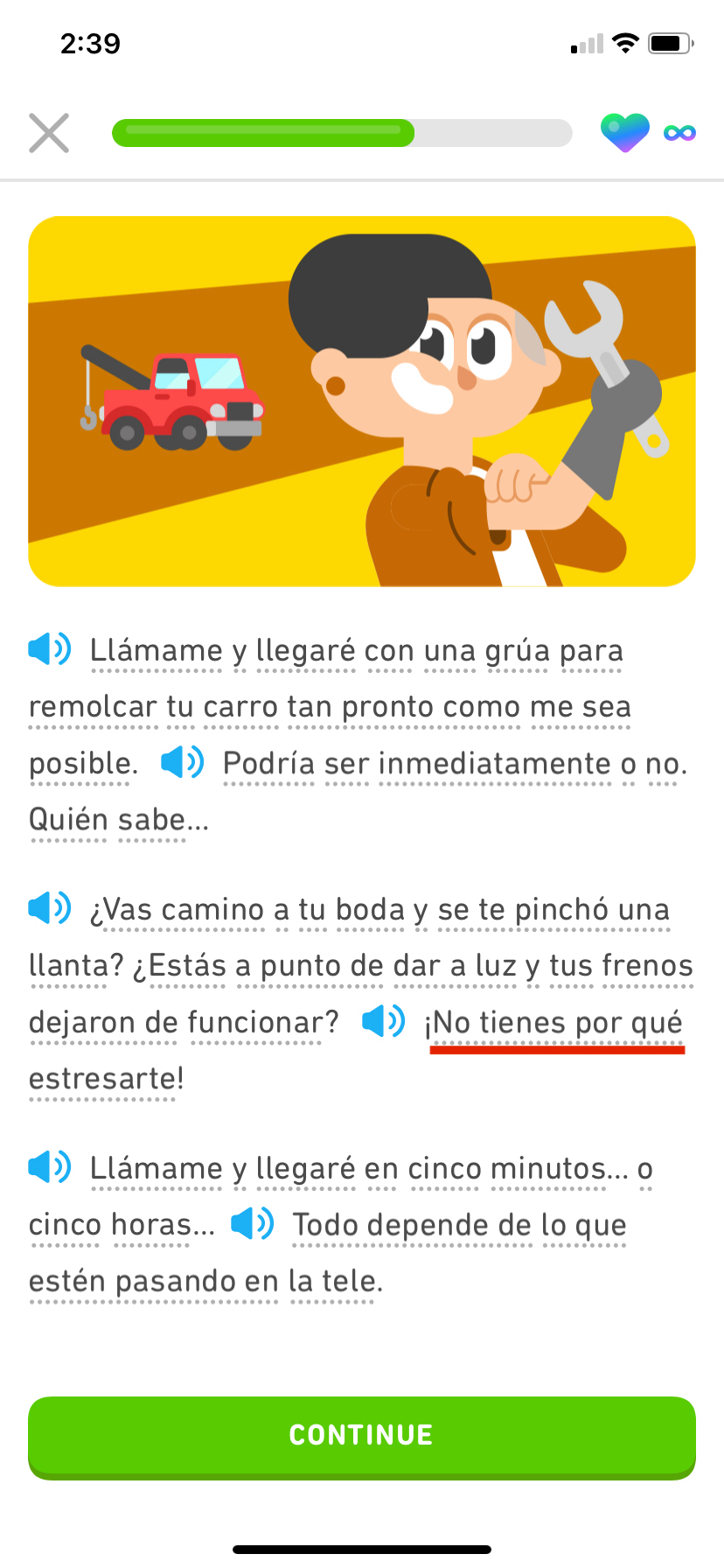 |
An exciting new chapter
You can look forward to advancing your reading skills with our newest Stories soon! You will find them in four of our courses: Spanish for English speakers, French for English speakers, English for Spanish speakers, and English for Portuguese speakers. Happy reading!

